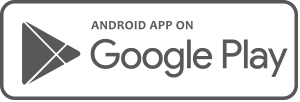Progress suggests we’re heading ever closer to becoming a cashless society. Payment via good ol’ fashioned notes and coins may one day be a thing of the past. More and more, the purchase of goods and services is being made via direct electronic funds transfer.
Once upon a time, cards were only used to pay for big ticket items, like home appliances. Today, the ease of “tap and go”-style payment at points of sale means cards can be used to pay for virtually anything a daily basis, even something as cheap as a pack of chewing gum. The benefits are obvious: quick, convenient and, these days, very secure. What are the ramifications, however, when the money on the card isn’t actually the user’s? We’re talking about credit cards! Used responsibly — that is, staying below the limit and paying the balance on time each month — a credit card can be a handy tool. Bandied about recklessly, though, the plastic isn’t so fantastic. According to the Australian Credit Card and Debit Card Statistics Report released in March 2016 by finder.com.au and Reserve Bank of Australia:
- There are nearly 16,500,000 credit cards.
- The average credit card balance is $3,114.
- The average credit card balance accruing interest is $1981.
By the end of 2015, Aussies as a collective had a total outstanding balance on credit cards of $52 billion, with more than $33 billion of it amassing interest. As a nation, we’re spending more than $7 billion a year on credit card interest alone.
According to mybudget.com.au, over half of the adult population has two or more credit cards, and more than two-thirds of cards attract an annual interest rate of around 20%.
You see, banks don't cut interest rates on credit cards, even when the cash rate is low. While home loan rates have shifted more or less in line with the cash rate set by the Reserve Bank, credit card rates have remained steady. To put that into context for the individual, someone with a $5000 card debt is paying $1000 a year in interest. Also, it would take over 30 years to pay off that balance making only minimum repayments. Some signs that you may not be in control of your credit card include:
- Relying on it to cover everyday expenses.
- Maxing it out.
- Inability to pay it off in full at the end of each month.
- Failure to save money.
- Regularly incurring late fees and charges.
- Using one credit card to pay off another.
In extreme cases, increasing credit card debts can result in bankruptcy. Of course, you want to nip any problems in the bud before that scenario. In some instances, professional help may be the next port of call, like engaging the services of a financial adviser, particularly one using cash flow services supported by Moneysoft.
"As soon as you can't repay your bill each month, you are living beyond your means", said financial adviser Adele Martin of Firefly Wealth, “Psychologically, it gets too difficult and people feel like giving up". Adele employs a two-step plan with clients who have accumulated what they feel is an insurmountable credit card debt:
- Step 1 is building up an emergency fund of at least $1000. "The buffer is so that people don't start to build up their debt again”, she said, “This can easily happen if there’s nothing to fall back on and it can become a vicious cycle”.
- Step 2 is transferring the balance to an interest-free card and planning to pay off the debt within the interest free timeframe.
As a financial expert, Adele is confident she can usually find hundreds, even thousands of dollars of yearly savings in clients' budgets.
“A product like Moneysoft is capable of helping consumers to make savings from the get-go. This may be as simple as evaluating outgoings to identify recurring payment for products and services not being used wisely… or even at all. Therefore, unused gym memberships are cancelled, while pay TV subscriptions like Foxtel are downgraded or even ditched for cheaper streaming services like Netflix and Stan.”
Adele also suggests that clients will be surprised what they can save on their regular credit cards debits, just by shopping around for better deals from energy companies and mobile phone providers. So, whatever you owe on your credit card, here are a few tips to get you paying it off sooner:
- Stop adding more debt to your credit card.
- Pay more than the minimum repayment, even if it’s just a little bit.
- Set up a direct debit to pay a fixed amount off the balance each payday.
- If you have more than one credit card, pay off the one with the highest interest rate first.
Paying off your credit card debt should be a top financial priority. Start today and if you don’t already have a financial adviser, consider speaking with one who is already using Moneysoft to help you – you may be surprised how much they will help you to save!
You can contact moneysoft by emailing us at support@moneysoft.com.au should you require any help to find an adviser.
Posted 10 years ago 4 Minute(s) to read
Most Popular

Posted 7 years ago by Moneysoft Sales 2 Minute(s) to read
Media Release: New website launches with solutions to support Super funds
MEDIA RELEASE Moneysoft launches new website to support super fund focus December 14, 2018 Financial technology company Moneysoft has launched a new website that showcases its growing range of services to large...
Read more
Posted 7 years ago by Moneysoft 4 Minute(s) to read
Research shows that budgeting and cashflow management the top advice priority for younger Australians
Research shows that budgeting and cashflow management the top advice priority for younger Australians 15 January, 2019 Younger people overwhelmingly rank budgeting and cashflow management as the most valuable type of...
Read more
Posted 9 years ago 2 Minute(s) to read
Moneysoft enters new partnership with Mortgage Choice
April 11th, 2017: Moneysoft’s advice technology will power a new Mortgage Choice Financial Planning tool aimed at bolstering clients’ money management skills and helping them reach their financial goals.
Read more
Posted 8 years ago 2 Minute(s) to read
Moneysoft and IRESS XPLAN deliver a powerful combination
Curbing regulatory changeMaintaining and adhering to the regulatory compliance standards in Australia, means that Financial advisers face new challenges to deliver a quality service offering.
Read more
Posted 8 years ago Less than a minute to read
Bringing tailored advice to the mass market using technology
Adele Martin, Money Mentor. Adele Martin, is transforming the advice industry, using technology to scale her business.
Read more
Posted 8 years ago 1 Minute(s) to read
Innovative benchmarking for advisers and clients
As part of the standard offering, Moneysoft includes free access to a benchmarking and reporting tool giving Advisers unique insights into the spending habits of their clients and the ability...
Read more
Posted 8 years ago Less than a minute to read
How to help young professionals reach their goals
Michael Chew, Co-Founder & Director of Orange Wealth Michael's clients are typically young, professional families.
Read more
Posted 7 years ago 2 Minute(s) to read
New budget overview
Overview The budget page has undergone a significant re-design. Check out our walk through video by clicking here.
Read more
Posted 7 years ago 2 Minute(s) to read
Release notes August / September 2018
The process of entering in updated credit card details has been improved to prevent an issue where this could fail and not provide an error message.
Read more

